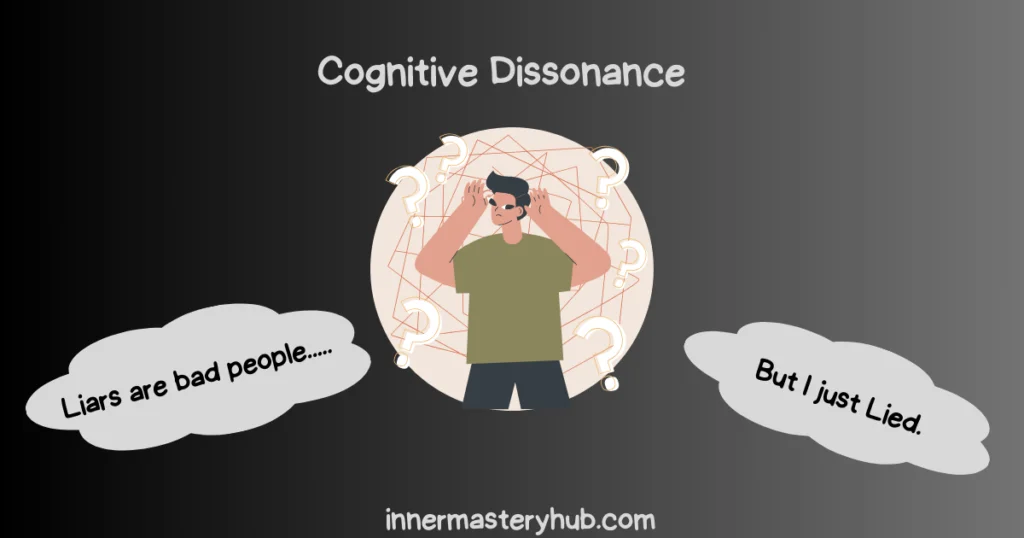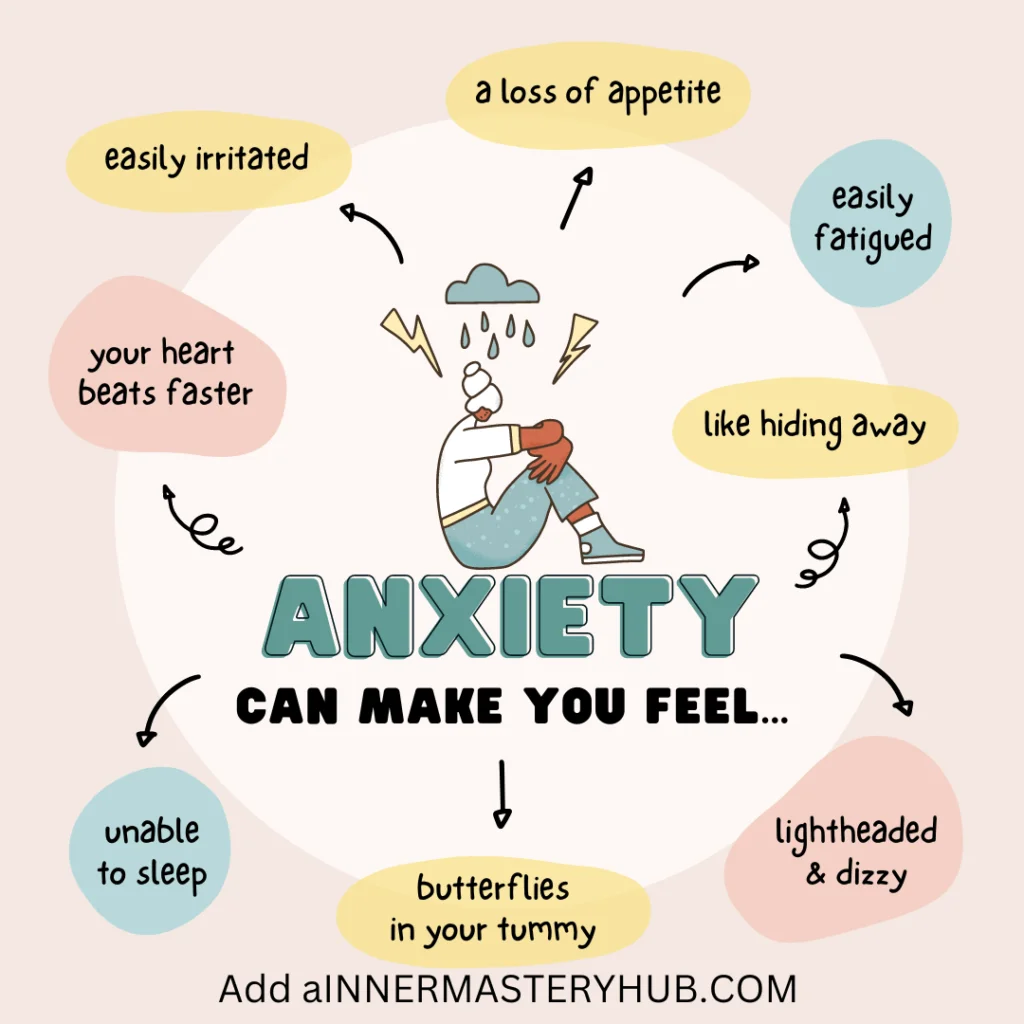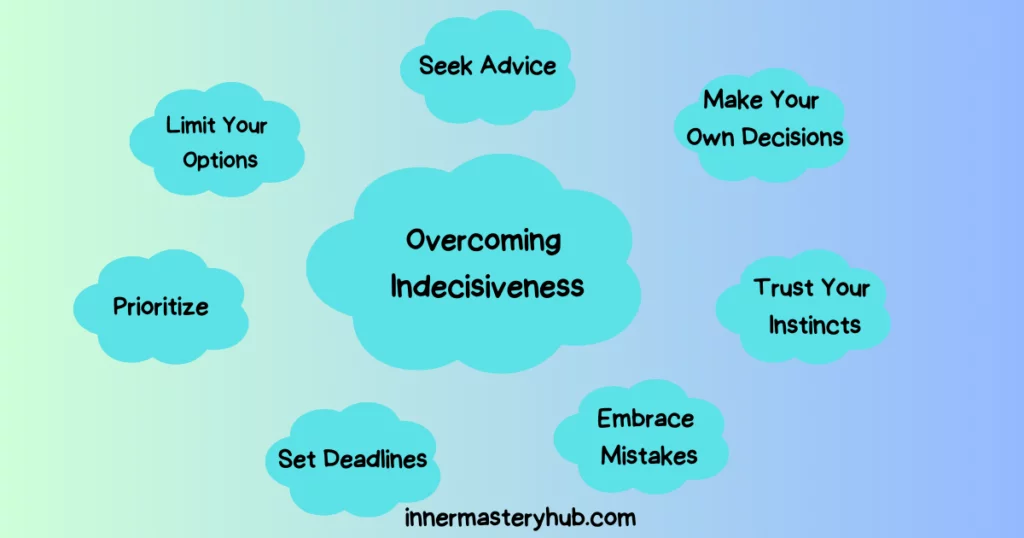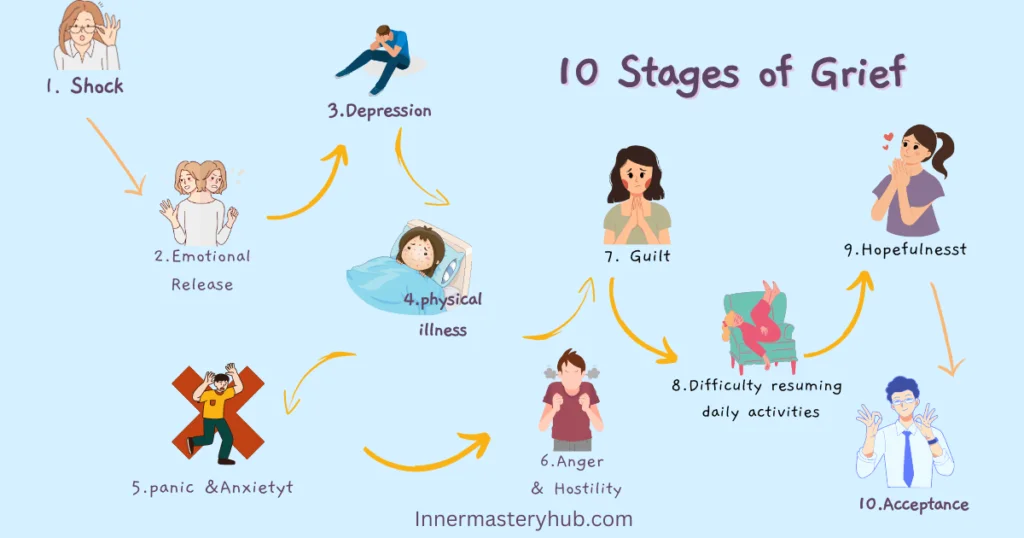
Sometimes, our lives are so scattered or busy that we daydream and try to escape Reality.
–Unlnown
You know, we all need an escape from reality from time to time. It functions similarly to a coping strategy, allowing us to temporarily escape the challenges of daily life. It can be as simple as immersing yourself in a good book, losing yourself in a film, or exploring the huge worlds of video games.
It is similar to a revitalizing vacation that replenishes our mental reserves and provides us with a new perspective upon returning to our daily routine. The article will examine why we deal with reality without escaping it and avoiding it.
Table of Contents
What is the psychology of escaping from reality?
At times, the crushing weight of responsibilities, expectations, and the daily grind can be overwhelming, leading us to yearn for an escape – a desire to run away. This is not inherently negative. It’s a primal response of self-preservation, a signal from our minds that our current situation or environment is causing undue stress or unhappiness.
In the dictionary, the term is the tendency to seek distraction and relief from unpleasant situations, especially by seeking entertainment or engaging in fantasy.
In psychological terms, escaping from reality is a mental diversion from unpleasant or dull daily life, typically through activities involving imagination or entertainment. This can be a healthy coping mechanism, temporarily relieving day-to-day pressures.
However, when used excessively, it can become a retreat from responsibility, leading to neglect of crucial aspects of life. The psychology of escapism is often linked to what Freud described as the “pleasure principle” – the instinctual seeking of pleasure and avoidance of pain to satisfy biological and psychological needs.
Individuals may use escapism to create more pleasurable surroundings, albeit temporary and unreal. Cognitive dissonance theory also provides insight into escaping the truth. It suggests that when a person’s self-concept conflicts with his real life, they may use imagination to reduce this dissonance. Creating an imaginative world for themselves.
While fantasizing, Endorphins ( a neurotransmitter) are also released during pleasurable activities. Endorphins, known as natural painkillers, can help reduce discomfort and stress while boosting feelings of pleasure. This release of brain chemicals is part of why fantasizing can feel rewarding and enticing, often as a brainy escape from situations.
“Fantasy is hardly an escape from reality. It’s a way of understanding it.”
– Lloyd Alexander
People use different methods to Avoid their real-world
People resort to other ways to hide from their natural world. Some of these methods include
- Daydreaming
- Reading
- Gaming
- Drinking
- Binge eating
- Overworking
- Socializing
- Watching movies and shows
Positive and negative forms of escaping reality
Positive and negative conditions of escaping reality exist in our society. Joyous escapism involves using a creative outlet or hobby to run everyday life’s hurdles and tapping into your productivity and self-discovery.
In contrast, negative escapism is characterized by self-destructive behaviors such as alcohol and drug abuse, addiction, procrastination, feelings of alienation from facts, and reduced attention.
Positive Ways of Escaping from Reality
Positive escapism, referred to as self-expansion by Stengseng and his colleagues in 2012, can be seen as a healthy means of detaching from daily routines and pressures, providing comfort, and promoting creativity and self-expansion. This strong desire to escape can include engaging in activities like
- Practising a hobby
- Relaxing vacationing
- Losing oneself in a captivating movie
- Intellectually challenging literature
- Play games, from crosswords puzzle to minesweeper
These activities help refresh the mind, igniting renewed energy for facing life’s realities. Individuals who use positive escape to get temporary distractions are reasonably satisfied with the outcome and overall work and life fulfillment.
Negative Ways of Escaping from Reality
On the other hand, individuals who want to avoid unpleasant events or feelings use the negative form of escaping reality known as self-suppressive escape. Such Individuals could find it difficult to align their actions with how they view their duties and priorities, which increases anxiety. It frequently manifests as
- Overindulgence in gaming
- Impulsive social media use
- Binge-watching television shows
- Excessive consumption of alcohol
Harmful escape from activities may provide temporary relief, but their long-term effects can be detrimental. They act as a Band-Aid, avoiding underlying issues and addictive behaviors
Disconnecting from facts intensifies feelings of isolation as individuals withdraw socially to delve deeper into their escape world. Recognizing and addressing the root causes is crucial to break this harmful cycle.
Escaping from Reality Quotes
Here are some insightful quotes:
“We all need escapism. I think there’s a time and a place for everything. If you dive too deep into anything, it can get dangerous, but I don’t think there’s anything wrong with a harmless escape here and there.”
– Ronda Rousey.
“Escape from reality is a necessary ingredient in the recipe of creativity.”
– Anonymous
Coping Strategies People Use To Avoid Facts
According to a study at the Universität Mannheim, how much time people spend watching television indicates how much they like avoiding situations. These psychologists found that people who need less time for introspection and self-reflection also tend to watch more television. Here are some coping strategies:
Situational avoidance
Situational avoidance can be an escape in which people attempt to flee or avoid particular things or situations that they find upsetting, distressing, or anxiety-inducing. Situational avoidance can take many different forms.
To eliminate social anxiety, someone can, for instance, avoid crowded settings or social groups. Similarly, staying away from circumstances like flying because of a phobia can also be a way to escape reality from an uncomfortable situation.
Cognitive avoidance
Research studies have shown that cognitive avoidance can be a coping mechanism for stressful circumstances. Escaping Reality, in which people attempt to separate themselves from their daily life issues mentally, is frequently linked to it.
For instance, when confronted with pressures related to chronic disease diagnosis, people may use cognitive avoidance tactics to escape the emotional load of the disease momentarily. Like other escaping techniques, cognitive avoidance can have both advantages and detriments. While it can ease discomfort temporarily, it also prevents long-term problem-solving and emotional processing.
Somatic Avoidance
To avoid facing emotional or psychological facts, those who engage in somatic avoidance strive to remove themselves from their physical sensations. For example, avoiding situations that make you physically uncomfortable or repressing strain- or trauma-related physiological feelings.
For instance, a person who has gone through a terrible heartbreak may practice somatic avoidance by avoiding physical reminders or sensations connected to that event.
Protective Avoidance
In this context, protective avoidance is a coping strategy in which people avoid circumstances that make them feel threatened or anxious to safeguard their emotional health. Someone who refrains from applying for jobs out of concern about rejection could serve as an example.
They shield themselves from the possible hurt of rejection by abstaining from using. However, they are also giving up the chance to land a job they might like or enhance their quality of life.
Emotional Avoidance
Emotional avoidance is similar to ignoring our feelings in the hopes that they will go away. It is the avoidance of unpleasant or upsetting emotions rather than their confrontation. To numb themselves, someone can, for instance, take drugs or overeat.
But here’s the thing: these short-term diversions ultimately make things worse. They may result in mental health issues, a protracted recovery process, and even greater emotional distress.
Instead, we should focus on building emotional resilience and embracing our emotions. Mindfulness, self-compassion, and therapy are powerful tools that can help us navigate emotional turbulence and promote our overall well-being.
Virtual Reality Trend As a Tool for Escaping from Reality
With its ability to immerse users in interactive surroundings, virtual reality (VR) provides a unique escape. By taking people to inaccessible places, it allows them to experience scenarios and environments that are not available in the actual world. VR expands the range of ways to escape reality, from gaming to meditation, improving mood, creativity, and stress alleviation.
Mindful navigation is essential, though, because virtual reality can turn into a harmful way to escape reality. Striking a balance between virtual retreat and in-person interaction is essential.
Books Reading to Escaping from Reality
Books have long been a refuge from the truth of your life, transporting readers into different worlds, times, and perspectives. They are an excellent tool for positive escape, providing mental rest and stimulating imagination.
1. Harper Lee’s To Kill a Mockingbird, which provides a moving examination of mankind and morality, and J.R.R. Tolkien’s The Lord of the Rings, which transports readers to the wondrous world of Middle-Earth, are two great options for losing yourself.
2. Crime and Punishment by Fyodor Dostoevsky raises important issues regarding morality and atonement while delving deeply into the human mind through its tortured protagonist.
3. Isaac Asimov’s Foundation trilogy offers science fiction fans a future world in which humanity’s destiny is up for grabs.
4. For a good way to pass the time, immerse yourself in a wealth of cerebral books. The dystopian society explored in George Orwell’s 1984 makes readers think about politics and power.
5. Lastly, Friedrich Nietzsche’s Thus Spoke Zarathustra explores morality, truth, and the meaning of life and is a difficult but worthwhile read for philosophy buffs.
Coping Tools To Avoid the Negative Side of Escaping from Reality
Here are some tools to avoid excessive diversion :
1. Tapping Into Your Creativity
By using our creativity, we can turn our reality into a blank canvas for self-expression and investigation, leading to contentment and fulfillment in our daily lives. It pushes us to face our emotional and psychological landscapes head-on rather than avoid them.
This approach may be incredibly illuminating and cathartic, helping us to better understand our dreams, anxieties, desires, and motives.
Writing, painting, crafting, or even cooking are examples of creative pursuits that can work as therapeutic channels for expressing emotions. They frequently enable us to convey concepts that are difficult to express, sentiments, self-care, or spiritual development.
2. Reflection
Dealing with excessive distraction requires reflection. It encourages critical thinking, helps people listen to their voices, and helps them understand why they feel the desire to flee reality. Where are they fleeing to? How may their circumstances be altered?
People can address the underlying reasons why they are uncomfortable with facts instead of avoiding them by engaging in self-reflection.
Personal development, self-awareness, and better coping strategies are encouraged by this process. It also helps people learn to appreciate the here and now, which enables them to be happy with their situation rather than always looking for ways to get away from it.
3. Maintaining a balanced lifestyle
It is essential to maintain a balanced lifestyle. This covers social engagement, enough sleep, a balanced diet, and frequent exercise. Exercise improves well-being, lowers stress, and elevates happiness.
A balanced diet promotes mood stability and brain function while getting enough sleep guarantees cognitive performance. Social connection lessens feelings of loneliness by fostering a sense of belonging and emotional support.
4. Journaling or writing
Writing, drawing, and journaling are examples of creative pursuits that can be therapeutic for expressing emotions that are often hard to put into words. People who engage in these activities may feel more connected and content with their lives since they provide them a sense of success and a way to express themselves.
5. Psychotherapy
With its safe setting for exploring underlying problems and creating healthy coping strategies, psychotherapy can be very helpful. People who struggle with difficult negative thought patterns and behaviors might alter their perception of reality with the use of cognitive behavioral therapy (CBT).
Stop Avoidance and Start Facing.
Although avoiding the events could provide a brief reprieve from life’s difficulties, it is essential to face the truth head-on. In the long term, avoiding issues simply makes them worse and hinders your healing process.
Rather than turning to a parallel reality for comfort, people ought to courageously confront their anxieties and difficulties.
Realizing that everyone has the inner strength to triumph against hardship is essential. We frequently have the answers to our problems inside of us. Tools like self-analysis, counseling, a healthy lifestyle, and artistic endeavors can provide us with the tools we need to confront life’s obstacles head-on rather than avoid them.
Adopting the truth ultimately fosters personal development, fortitude, and a more contented life or state of relaxation.
RELATED POSTS
Socially Adept: What Makes Someone a Master of Connection?
The relationship between Quiet Confidence & Inner Strength
Life-Changing Self-Acceptance Quotes for Personal Growth
FAQS
How to Escape Reality Forever?
Avoiding the situation permanently is not a healthy option. Life includes both positive and negative experiences that shape us. However, temporary strategies like meditation, hobbies, travel, and physical activity can provide a break if you feel overwhelmed. Remember, these are quick solutions, and seeking professional help is essential when needed.
Why am I escaping the truth?
It can be an automatic response to discomfort, a way to seek temporary relief from life’s hardships. However, this can also be a barrier to confronting and resolving underlying issues, ultimately hindering personal growth and resilience.
Why am I addicted to escaping from reality?
Addiction to escaping often stems from a desire to avoid discomfort or unpleasant emotions. It provides a temporary refuge from current situations but may become a chronic response, potentially hindering personal growth, emotional resilience, and effective coping strategies. It’s crucial to find healthier alternatives for stress management.
How do you escape from Reality for a while?
Mindfulness meditation can provide a healthy desire to escape reality. We can temporarily detach from our surroundings by focusing on breathing and letting go of intrusive thoughts. Reading a captivating book or immersing ourselves in a hobby can offer a pleasant, stress-relieving diversion.






